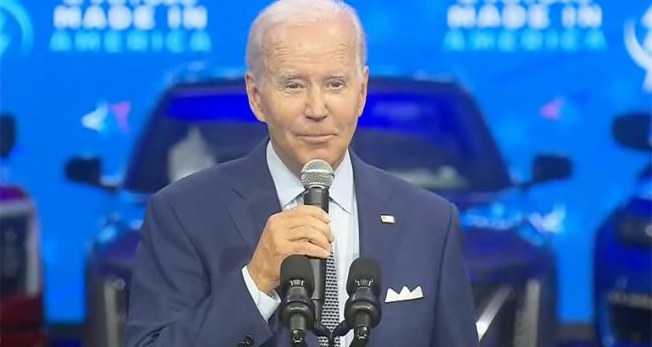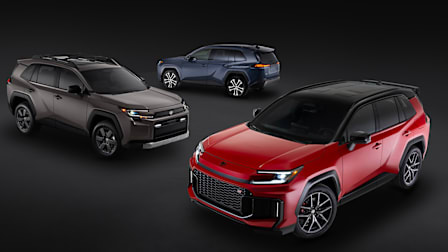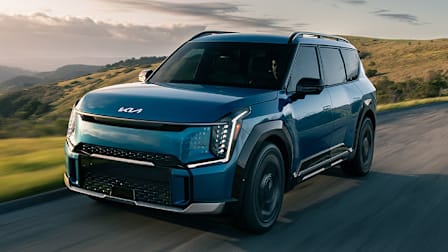White House Pledges Major Investment to Build New Electric Vehicle Chargers
The $900 million in funding is part of a plan to build 500,000 chargers across the country

The federal government has approved spending $900 million to install new EV charging stations across 35 states, President Joe Biden said during an appearance at the North American International Auto Show in Detroit.
The investment will address a shortage of public charging infrastructure, which a recent Consumer Reports survey shows is one of the biggest barriers to EV ownership.
“The great American road trip is going to be fully electrified,” Biden told those in attendance, promising that tomorrow’s charging stations would be as easy to find as modern-day gas stations.
The push for charging comes on the heels of changes to a federal EV tax credit program that lifts the cap on EV tax credits and adds incentives for buying used EVs, and California’s announcement that the state will require all new vehicles to be EVs or plug-in hybrids starting in 2035.

PBS PBS
The new chargers announced today would be built within 50 miles of each other and no more than a mile from a highway. They’ll also have to demonstrate 97 percent reliability. In addition, funding for the new charging stations will specifically target disadvantaged communities and prioritize filling existing gaps in service.
Biden, a self-described “car guy” and vintage-Corvette owner, has made vehicle electrification a priority. Last August, he issued strong new regulations aimed at automakers, including an executive order that would set a target for 50 percent of new vehicles sold in the U.S. by 2030 to be electric vehicles (EVs), plug-in hybrid vehicles (PHEVs), or fuel-cell electric vehicles (FCEVs).
In addition, the Inflation Reduction Act will add a tax break for used EVs and lift the cap on how many electric cars an automaker can sell before the credit phases out—although luxury EVs and vehicles not made in North America won’t qualify.
For those who can charge at home, CR has found good wall-mounted charging units that range in price from $500 to $700. Installing one costs from $492 to $1,191, according to HomeAdvisor. EV range is commonly around 250 miles—far more than most people typically drive each day— meaning that overnight charging can satisfy most drivers’ common needs. Experienced EV owners tell CR they consider range to be much less of an issue than non-owners, supporting this assertion.
A CR analysis shows that when switching from a gas-powered car to an EV, fuel savings alone can be $4,700 or more over the first seven years. In addition, thanks to lower maintenance and repair costs, the typical EV owner saves between $6,000 to $10,000 over the lifetime of the vehicle, despite the higher up-front cost of purchasing an electric vehicle. CR also found that, nationwide, EVs are over 60 percent cleaner than the average gasoline-powered vehicle, even when accounting for the power needed to charge them.




